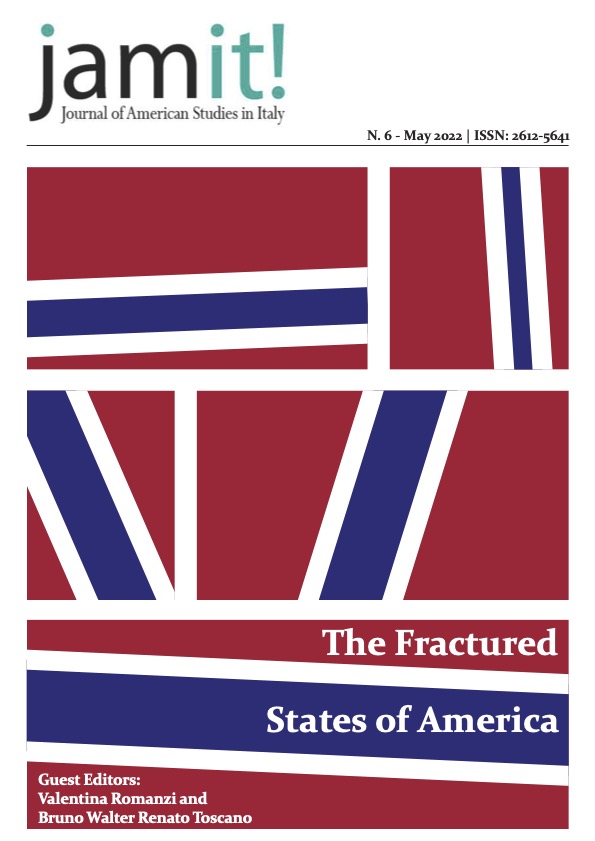The "Citizen-Savage"
White Masculine Degeneration in the Indian Hater Narrative
DOI:
https://doi.org/10.13135/2612-5641/5991Keywords:
Frontier Literature, Masculinity, 19th-Century AmericaAbstract
While commonsense tells us that the 19th-century U.S. was obsessed with individual rights and individual success, there remains evidence that civic duty continued to be a significant component of national identity. In fact, we might say that the conflict between individual rights and civic duty organizes one of the most popular forms of literature in the antebellum U.S.: frontier fiction. In this article, I turn to James Hall’s The Pioneer and Robert Montgomery Bird’s Nick of the Woods. In these significant narratives, Hall and Bird expose the dangers of negative individualism on the frontier without the checks of civic duty and martial spirit. By closely attending to nineteenth-century politics, Indian policies, and military/militia history, I explore how the Indian-Hater narratives of James Hall and Robert M. Bird are anxious about men whose passion for vengeance and violence transform them into the very “savage” they are hunting and how this “degeneration” bars them from returning to civil society. In this article, I argue that Indian Haters, in the narratives of Bird and Hall, reflect the Whig’s anxieties about the nation. Even though these men provide service by removing Indians, in the process, they abandon the virtues and morals stereotypical of the frontier hero; that is, their emotions and their bloodlust overtake their sense of duty to the polity; such degeneration undermines the nation because it very closely resembles the threat posed by Indians. A close look at Bird and Hall reveals that both authors are attempting to document this irony. Bird and Hall show how the Indian Hater motif highlights the reality of white degeneration of wayward/emotional men without the safeguards of martial virtue and civic duty. Even though the Jacksonian anti-Indian thought celebrates these Indian Haters, literature confronts readers with the self-destructive nature of uncontained Indian Hating. I observe that these narratives do more than present the Indian Hater as a self-sacrificial hero but rather closely diagnose how a man can become lost in his passions and become an Other from society without civic constraints.
Downloads
Published
Issue
Section
License
Authors who publish with this journal agree to the following terms:
- Authors retain the copyright and full publishing rights for their submissions to the journal.
- Authors grant the journal right of first publication with the work simultaneously licensed under a Creative Commons Attribution-NonCommercial-NoDerivatives 4.0 International License that allows others to share unedited work for non-commercial purposes with an acknowledgement of the work's authorship and initial publication in this journal.
- Authors are able to enter into separate, additional contractual arrangements for the non-exclusive distribution of the journal's published version of the work (e.g., post it to an institutional repository or publish it in a book), with an acknowledgement of its initial publication in this journal.
- Authors are permitted and encouraged to post their work online (e.g., in institutional repositories or on their website) prior to and during the submission process, as it can lead to productive exchanges, as well as earlier and greater citation of published work (See The Effect of Open Access).





